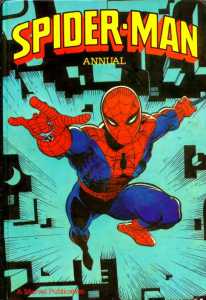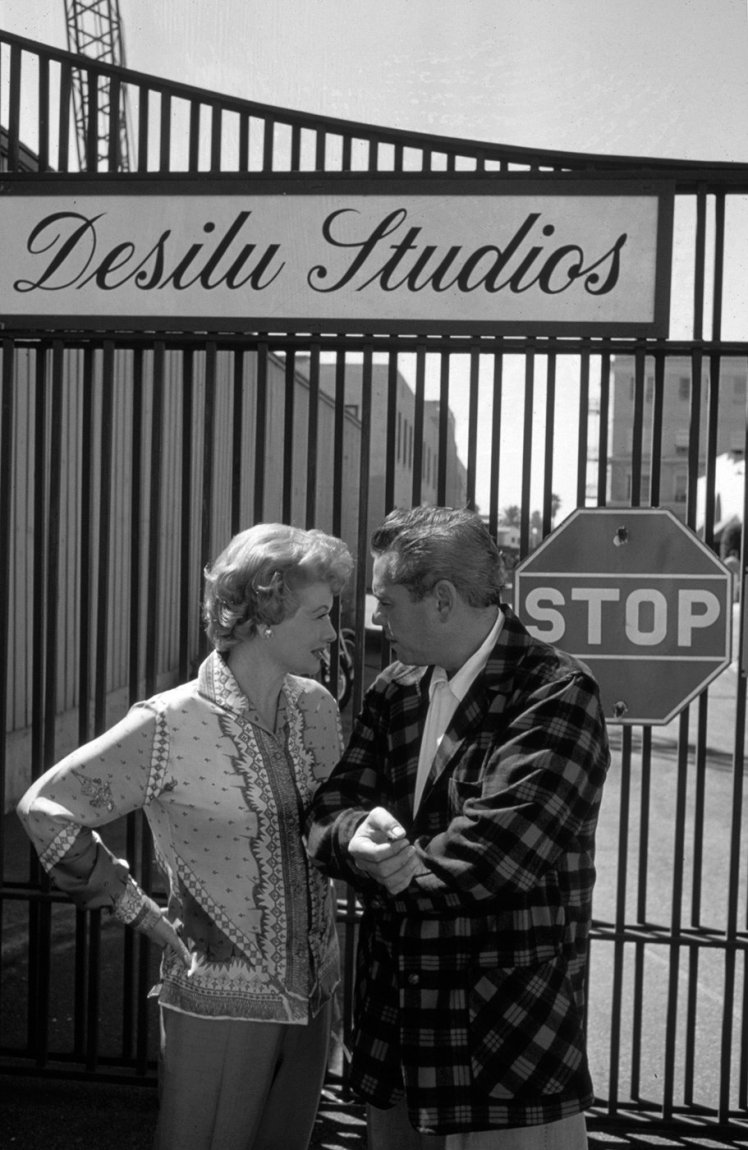 Simone Buchanan as Samantha Fitzgerald, the first bipolar character I ever encountered
Simone Buchanan as Samantha Fitzgerald, the first bipolar character I ever encountered
Samantha Fitzgerald was the first character I ever saw onscreen who had bipolar disorder. If you Google ‘characters with bipolar’, her picture is one of the first to appear. It’s not surprising if you haven’t heard of her – she was a minor recurring character played by Simone Buchanan on the Australian soap opera Neighbours for three months in 2008. Her mental illness was one of her biggest storylines, and there is something to be said about a prominent show featuring a misunderstood illness so explicitly. Unfortunately, while a lot of Samantha’s behaviour was accurately symptomatic of bipolar, the character’s main arc on the show was that of a villain. She was introduced as the estranged wife of Dan Fitzerald (Brett Tucker), a potential love interest for Libby Kennedy (Kym Valentine), a longstanding lead character on the show. She’s an obstacle to overcome, with her illness being the biggest part of that.
 Sam makes her first appearance when Dan seeks a divorce from her in order to start dating Libby. After she moves to the area, Sam convinces Dan that they can work things out, and Sam convinces him they should try for a baby. In an effort to get pregnant, Sam goes off her medication without telling anyone. Up until this point, Sam has been seen as an intelligent, successful young lawyer, and there has been very little evidence seen of her disorder. Once she goes off her meds, her symptoms flare up. She gets drunk and brings random guys back to her house. She lies about being pregnant and a subsequent miscarriage. She’s manipulative and destructive, and is in the story purely to present a problem for the couple that the show has set up to be together. Her impulsiveness and general demeanor are a relatively accurate depiction of mania, but the onset is so sudden, not to mention that Sam is never really presented as someone who is suffering and needs help. She’s a bad person causing problems for the heroes, and her diagnosis is used as a medically realistic reason for her to fulfill the “crazy ex-wife” trope. The reviews of her turn on the show reflect exactly this.
Sam makes her first appearance when Dan seeks a divorce from her in order to start dating Libby. After she moves to the area, Sam convinces Dan that they can work things out, and Sam convinces him they should try for a baby. In an effort to get pregnant, Sam goes off her medication without telling anyone. Up until this point, Sam has been seen as an intelligent, successful young lawyer, and there has been very little evidence seen of her disorder. Once she goes off her meds, her symptoms flare up. She gets drunk and brings random guys back to her house. She lies about being pregnant and a subsequent miscarriage. She’s manipulative and destructive, and is in the story purely to present a problem for the couple that the show has set up to be together. Her impulsiveness and general demeanor are a relatively accurate depiction of mania, but the onset is so sudden, not to mention that Sam is never really presented as someone who is suffering and needs help. She’s a bad person causing problems for the heroes, and her diagnosis is used as a medically realistic reason for her to fulfill the “crazy ex-wife” trope. The reviews of her turn on the show reflect exactly this.
In 2009, following a return appearance for the character, The Daily Record wrote:
We know we’re supposed to feel sorry for people who are ill, but can somebody just tell Dan’s ex-wife Sam to get knotted? The lawyer is bipolar, and in the past has used her illness as a way of driving a wedge between Libby and her man. But we had high hopes that we had seen the last of her when she returned to New Zealand to have the baby she almost tricked Dan into believing was his. Now, like the proverbial bad penny, she turns up to put a spanner in the works again – just as Libby and Dan are supposed to be looking forward to a life together after buying Steph’s old house. But what does she want, and will her latest demand ruin the Fitzgeralds’ previously blissful marriage?
It’s perhaps unreasonable to expect a soap opera to depict a mental illness in a way other than as a means to create drama; that’s the essence of these kinds of shows. Yet Samantha Fitzgerald stands alongside characters such as Annie Wilkes from Misery – mentally ill women who are to be feared and avoided. These depictions also perpetuate the myth that people with mental illness are violent, despite the fact that those suffering from mental illness are more likely to be victims than perpetrators.
What I was seeing in characters like Samantha was so far from my family’s experience, but this was all I saw for many years. Bipolar disorder was a realistic way to portray what used to be simply be called ‘madness’, and did nothing to represent the reality we were living with. While this was something that frustrated me, I almost didn’t notice the lack of good representation, until I found fiction that did it well. The YA novel Fangirl by Rainbow Rowell, and Josh Thomas’s dramatic sitcom Please Like Me both feature a parent of the lead character struggling with the disorder, and I was taken aback by the impact of seeing so much of my experiences being reflected back to me.
 Fangirl is the story of Cath Avery, a freshman in college taking her first steps towards adulthood. Her mother left when she and her twin sister Wren were eight years old, and their father Arthur has raised them on his own. While never explicitly stated, it’s clear Arthur suffers from bipolar disorder, showing symptoms of both mania and depression. However, this is not all there is to Arthur. He is well-rounded and real. He serves as more than a childhood trauma Cath has to overcome; he is shown as being as capable of giving support as much as he needs it. It acknowledges that there’s an element of the disorder that fuels creativity, and becomes a part of what makes the person special.
Fangirl is the story of Cath Avery, a freshman in college taking her first steps towards adulthood. Her mother left when she and her twin sister Wren were eight years old, and their father Arthur has raised them on his own. While never explicitly stated, it’s clear Arthur suffers from bipolar disorder, showing symptoms of both mania and depression. However, this is not all there is to Arthur. He is well-rounded and real. He serves as more than a childhood trauma Cath has to overcome; he is shown as being as capable of giving support as much as he needs it. It acknowledges that there’s an element of the disorder that fuels creativity, and becomes a part of what makes the person special.
A little manic was okay. A little manic paid the bills and got him up in the morning, made him magic when he needed it most.
“I was magic today girls,” he’d say after a big presentation, and they’d both know that meant Red Lobster for dinner, with their own lobsters and their own candle-warmed dishes of drawn butter.
A little manic was what their house ran on. The goblin spinning gold in the basement.
Fangirl by Rainbow Rowell, pg 97
Stephen Fry is someone who has been open and forthright about his experiences with bipolar, talks candidly about that in this interview. He also mentions how crippling the disorder can be, not just for the person who has it, but for those around them.
Reading Fangirl was an emotional experience for me; Cath was already a character I related to intimately, but her relationship with her dad was like seeing my life reflected on a page in a way I had never experienced. The novel shows Cath worrying about her dad; she knows she’s responsible for picking up on the signs before he descends into a serious episode, and she takes that responsibility seriously. Reading this book showed me how important representation is – not just for people outside of the experience to gain a stronger understanding – but for those in similar positions to feel seen and reassured and validated in what they’ve been through.
Her dad hadn’t done laundry in a while. The steps to the basement were covered with dirty clothes, like he’d just been throwing stuff down there for a few weeks.
She started a load of laundry.
She threw out pizza boxes with desiccated slices of pizza.
There was a poem painted on the bathroom mirror with toothpaste – maybe it was a poem, maybe it was just words. It was lovely, so Cath took a photo with her phone before she wiped it clean.
Any one of these things would have tipped them off if they’d been at home.
They looked out for him.
They’d find him sitting in his car in the middle of the night, filling page after page with ideas that didn’t quite make sense, and they’d lead him back inside.
They’d see him skip dinner; they’d count the cups of coffee. They’d notice the zeal in his voice
And they’d try to rein him back in.
Fangirl by Rainbow Rowell, p236
Arthur is admitted to hospital in the middle of the novel, but this is neither used as an event to create melodrama, nor is the seriousness dismissed as though the cure is in simply popping a pill. It’s a reality of living with the disorder, and it’s a challenging, worrying time for those around him, but it is also survivable, and it is not all he is.
In contrast, Josh’s mother Rose in Please Like Me is depicted as more of a tragic figure. In the first episode, Josh is confronted with Rose’s attempted suicide, and it becomes clear quickly that this is not the first time this has happened. While the first season follows Josh taking care of Rose through a period of depression, Season 2 opens with Rose in a manic state. This scene of her at the hairdresser is a stressful, frantic monologue, and very familiar to me.
Please Like Me doesn’t shy away from the harsh realities of living with a serious mental illness, one that can have fatal consequences. It accurately depicts the challenges that the sufferer faces, while also acknowledging the toll it takes on those around them. The Season 2 episode ‘Scroggin’ is a two-hander featuring only Josh and Rose, and between the realistic and tight script, and both Thomas’ performance as Josh and Debra Lawrence’s sympathetic and nuanced portrayal as Rose, the show quietly and honestly lets the audience in on a sensitive topic and common experience.
Ultimately though, the representation of of living with bipolar disorder that has been the most helpful and inspiring has not come from fiction at all. It has come from the ultimate source – real life champion, advocate, and all-round queen of the universe, Carrie Fisher.
 My mother has been a lifelong Star Wars fan since the release of the first film in 1977. A science-fiction nerd from way back, the franchise has always been a favourite in our house.
My mother has been a lifelong Star Wars fan since the release of the first film in 1977. A science-fiction nerd from way back, the franchise has always been a favourite in our house.
What Carrie Fisher has come to mean to our family transcends her being an incredible character in a space adventure. Fisher’s authenticity in discussing her living with bipolar has been inspiring and hopeful in a myriad of ways.
Following my mother’s diagnosis, she found comfort in knowing that’s what Carrie Fisher had. It provided a point of reference for people around us when we told them. It was a foothold, and gave a context to an illness still so shrouded in myth and uncertainty.
One of my greatest regrets is never seeing Fisher perform her one-woman-show Wishful Drinking, but I did read the book, and it changed my life. Even though I’d been at my mother’s side every step of her journey, reading Fisher’s candid account of what her life was like made me understand and appreciate the experience all the more. She’s unflinchingly honest about what she has been through, and while she never shies away from the challenges, she maintains her sense of humour and determined perspective. Her illness was not going to take anything away from her – not her ability to laugh, or love, or be who she was.
At the end of Wishful Drinking, Fisher writes an acknowledgement. I read it out loud to my mother once I’d finished the book. She was brought to tears.

Carrie Fisher has spoken many times about her experiences, and I encourage you to look them up, but nothing has meant more to my family than this passage. I saw what these words meant to my mother. I gave her my copy of the book, and when I asked her to take a photo of this page to write this piece, she had it on hand immediately. Fisher’s courage and convictions have been a source of strength for us, and I know I speak for both of us when I express how grateful I am that she lived on this planet with us.
I have had my own experiences with mental illness, primarily anxiety and obsessive compulsive disorder. I try to be authentic and honest with people about this, particularly in my day job as a high school teacher, where I work with young people who are battling all kinds of unseen monsters. The importance of feeling seen and understood cannot be underestimated, especially when it comes to reducing shame and stigma. Mental illness should not be seen as a backstory for a serial killer, but something that affects millions of people in across the globe in unique ways.
I am grateful for writers such as Rainbow Rowell and Josh Thomas who have created characters that are as rich and real as Arthur and Rose. I am grateful for people like Stephen Fry and Carrie Fisher who have let the world into their private experiences. This is how we understand ourselves and each other, how we see and be seen.
Misrepresentation causes damage. Authentic representation saves lives.
Until next time.
Please Like Me can be watched on Netflix.
Visit beyondblue for more information about bipolar disorder.
If you need to talk to someone call Lifeline on 13 11 14 (Australia only). If you’re under 25, visit headspace .
Advertisements Share this:




